 It’s a beautiful summer’s day and to celebrate the new academic year the Research Development Unit has some exciting news – the launch of the BU Research Development Fund!
It’s a beautiful summer’s day and to celebrate the new academic year the Research Development Unit has some exciting news – the launch of the BU Research Development Fund!
The Research Development Fund (RDF) is open to BU academics and will provide selective support to research initiatives considered to be of strategic importance to BU. There are two strands to the RDF: i) Small Grants Scheme (up to £2k per application); and ii) Large Collaborative Grants Scheme (up to £25k per annum, must include two or more Schools). It is envisaged that each year approximately 20 small grants will be awarded and one large collaborative grant.
Awards will only cover direct costs (i.e. overheads and established staff costs will not be reimbursed). Applications need to include a precise breakdown of costs calculated using full economic costing (fEC) methodology – this will be calculated for you by the CRE Operations team.
All decisions on funding will be made by the University R&E Forum (UREF).
An overview of the two schemes is provided below. For further information please read the Research Development Fund Policy.
RDF – Small Grants Scheme (up to £2k per award) – There will be three competitions per annum. Academic staff wishing to apply must submit an application form to the PVC (Research, Enterprise and Internationalisation) via the RDU by the scheme deadlines:
- 31 October 2011
- 28 February 2012
- 31 May 2012
Priority will be given to applications that involve staff from two or more Schools and/or those from early career researchers.
Examples of research activities covered by the RDF include:
- Pilot projects
- Pump-priming
- Interview transcription
- Fieldwork
- Visiting major libraries, museums, other research institutions, etc.
- Organisation of an academic conference at BU with external participants
- Attendance at external networking events leading to collaborative research proposals
- Meetings with external organisations to establish collaborations
- Preparation of specialist material or data
- Short-term Research Assistant support or replacement teaching
- Research consumables and equipment (providing it is clear these would not normally be purchased by the School)
To apply for a Small Grant, please complete the RDF-SGS application form.
RDF – Large Collaborative Grants Scheme (up to £25k per award) – There will be one competition per annum. Academic staff wishing to apply must submit an application form to the PVC (Research, Enterprise and Internationalisation) via the RDU by the scheme deadline:
The RDF – Large Collaborative Grants Scheme aims to provide funding for the development of large-scale, complex, inter/multi-disciplinary collaborative research activities leading to external funding. Applications must involve academic staff from at least two BU Schools. Priority will be given to applications that meet the following criteria:
- In line with BU’s emerging Research Themes
- Include external organizations (particularly SMEs and/or international organizations)
- In line with the strategic priorities of major funding bodies (such as the UK research councils, European Commission, etc)
- Clearly beneficial to BU’s submission to REF2014
Examples of research activities covered by the RDF include:
- Pilot projects
- Pump-priming
- Meeting expenses
- Travel to proposed collaborators
- Attendance at external networking events with the aim of expanding the network
- Preparation of specialist material or data
- Short-term Research Assistant support or replacement teaching
- Consumables and equipment (providing it is clear these would not normally be purchased by the School)
- Fees for external proposal support and review
To apply for a Large Collaborative Research Grant, please complete the RDF-LCGS application form.
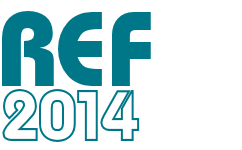 At the end of July the REF team released the draft panel working methods and criteria documentation (see our previous blog post for access to the documents).
At the end of July the REF team released the draft panel working methods and criteria documentation (see our previous blog post for access to the documents). Research round-up: we’re not getting smarter but we do know our whiskey
Research round-up: we’re not getting smarter but we do know our whiskey
 It’s a beautiful summer’s day and to celebrate the new academic year the Research Development Unit has some exciting news – the launch of the
It’s a beautiful summer’s day and to celebrate the new academic year the Research Development Unit has some exciting news – the launch of the 
 Back in April it was announced that BU would be launching an Open Access Publication Fund in August 2011 (see the previous blog post here:
Back in April it was announced that BU would be launching an Open Access Publication Fund in August 2011 (see the previous blog post here: 

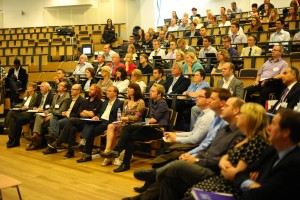 We had two great events this week both hosted by the Digital Hub at Bournemouth University. The Digital Day on the 19th July took place at Kimmeridge House on Talbot Campus and the Digital Dinner at the Chewton Glen.
We had two great events this week both hosted by the Digital Hub at Bournemouth University. The Digital Day on the 19th July took place at Kimmeridge House on Talbot Campus and the Digital Dinner at the Chewton Glen.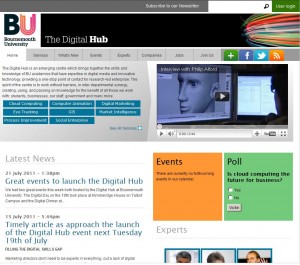
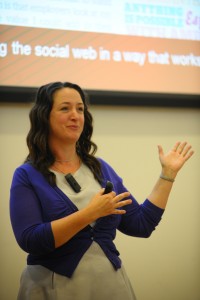
 I’d like to introduce you to
I’d like to introduce you to 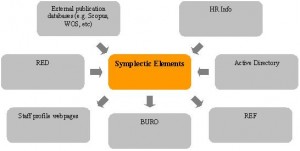

 The University Research and Enterprise Forum (UREF) agreed yesterday to expand the five working days internal deadline to applications made via the E-Gap2 and Leverhulme Online e-submissions systems. This will affect all applications made to the following funding bodies:
The University Research and Enterprise Forum (UREF) agreed yesterday to expand the five working days internal deadline to applications made via the E-Gap2 and Leverhulme Online e-submissions systems. This will affect all applications made to the following funding bodies: Academic staff will continue to be guided through the process and made aware of the internal submission deadlines by the CRE Operations team.
Academic staff will continue to be guided through the process and made aware of the internal submission deadlines by the CRE Operations team. Space travel has been in the news recently with the last space shuttle flight on the 8th July 2011 (
Space travel has been in the news recently with the last space shuttle flight on the 8th July 2011 (



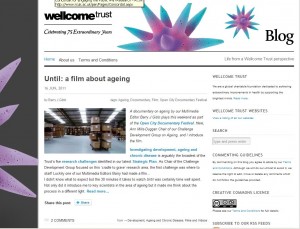

 Since 2007
Since 2007  A survey in 2010 demonstrated that ca. 80% weren’t expecting to encounter science at a festival and that many participants said they stumbled across the activities by accident but stayed because they looked fun. In addition 84% said they would ‘definitely take part again’.
A survey in 2010 demonstrated that ca. 80% weren’t expecting to encounter science at a festival and that many participants said they stumbled across the activities by accident but stayed because they looked fun. In addition 84% said they would ‘definitely take part again’.










 New weight change BU paper
New weight change BU paper One week to go! | The 16th Annual Postgraduate Research Conference
One week to go! | The 16th Annual Postgraduate Research Conference Geography and Environmental Studies academics – would you like to get more involved in preparing our next REF submission?
Geography and Environmental Studies academics – would you like to get more involved in preparing our next REF submission? Congratulations to three former BU staff
Congratulations to three former BU staff MSCA Staff Exchanges 2024 Call – internal deadline
MSCA Staff Exchanges 2024 Call – internal deadline Applications are now open for 2025 ESRC Postdoctoral Fellowships!
Applications are now open for 2025 ESRC Postdoctoral Fellowships! Horizon Europe – ERC CoG and MSCA SE webinars
Horizon Europe – ERC CoG and MSCA SE webinars MaGMap: Mass Grave Mapping
MaGMap: Mass Grave Mapping ERC grants – series of webinars
ERC grants – series of webinars